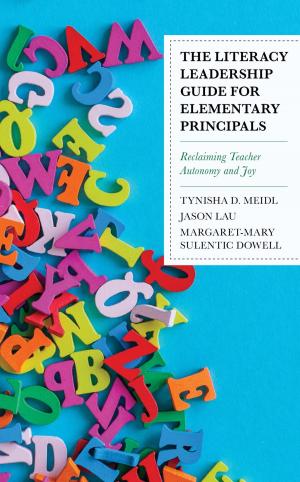Toxic Friendships
Knowing the Rules and Dealing with the Friends Who Break Them
Nonfiction, Family & Relationships, Relationships, Friendship, Family Relationships, Conflict Resolution, Social & Cultural Studies, Social Science, Gender Studies, Women&| Author: | Suzanne Degges-White, Judy Pochel Van Tieghem | ISBN: | 9781442239982 |
| Publisher: | Rowman & Littlefield Publishers | Publication: | June 11, 2015 |
| Imprint: | Rowman & Littlefield Publishers | Language: | English |
| Author: | Suzanne Degges-White, Judy Pochel Van Tieghem |
| ISBN: | 9781442239982 |
| Publisher: | Rowman & Littlefield Publishers |
| Publication: | June 11, 2015 |
| Imprint: | Rowman & Littlefield Publishers |
| Language: | English |
Good friends and healthy friendships are crucial to women’s well-being at every stage of life. But what happens when a friendship turns toxic? When a friend becomes hurtful or mistreats another? When a friend abandons another in a time of need? Here, Suzanne Degges-White and Judy Pochel Van Tieghem explore such toxic friendships and how women navigate the ups and downs, as well as how broken friendships can be mended and bad friendships ended.
Explaining and illustrating the “rules of friendship” at various stages of life, the authors reveal what it takes to be a good friend, how to identify bad friends, and how to move forward when friendships turn sour. Vignettes of toxic friendship behaviors are shared, as well as tips on how best to respond to these rule-breaking friends in order to rebuild damaged relationships and repair a friendship’s foundation (when appropriate) and how to decide when it’s time to let go of a relationship that is bringing you down versus keeping you afloat. Information for parents is also provided, to aid them as they help their daughters navigate their friendships. We all need friends, but knowing when and how to let go can help us all be better friends—to ourselves, and also to others.
Good friends and healthy friendships are crucial to women’s well-being at every stage of life. But what happens when a friendship turns toxic? When a friend becomes hurtful or mistreats another? When a friend abandons another in a time of need? Here, Suzanne Degges-White and Judy Pochel Van Tieghem explore such toxic friendships and how women navigate the ups and downs, as well as how broken friendships can be mended and bad friendships ended.
Explaining and illustrating the “rules of friendship” at various stages of life, the authors reveal what it takes to be a good friend, how to identify bad friends, and how to move forward when friendships turn sour. Vignettes of toxic friendship behaviors are shared, as well as tips on how best to respond to these rule-breaking friends in order to rebuild damaged relationships and repair a friendship’s foundation (when appropriate) and how to decide when it’s time to let go of a relationship that is bringing you down versus keeping you afloat. Information for parents is also provided, to aid them as they help their daughters navigate their friendships. We all need friends, but knowing when and how to let go can help us all be better friends—to ourselves, and also to others.















